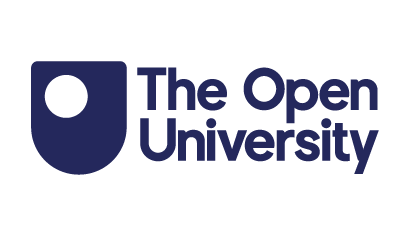Get the job: Top interview questions for teachers
Hoping to land a teaching role? Take a look at the top 10 job interview questions you're likely to be asked.

Teaching is one of the most rewarding and challenging professions out there. It takes a special person to be able to nurture the minds of young people and help them grow into responsible adults.
If you’re thinking about becoming a teacher, you’ll want to be prepared for the teaching interview process. Teaching jobs are highly competitive, so to make sure that you stand out from the crowd, we’ll look over some of the most common questions that interviewers ask prospective teachers. We’ll also provide tips on how to answer these teaching interview questions effectively.
Find your first teaching job
The prospect of finding your first teaching job can be daunting, but there are a few things you can do to increase your chances of success. Taking a course like Becoming a Teacher by The Open University is a great way to get comfortable with what being a teacher means. Once you’re ready to start the job search, you can write a strong CV to prepare for job applications and interviews.
Write your CV
Your CV is your first opportunity to make a good impression on potential employers. It should be clear, concise, and free from any errors. The Work Ready Skills: Job Searches, Writing a CV and Interviewing course by CQ University will teach you to write a strong CV and prepare for interviews. The English Grammar for Teachers course by UCL can also help you write a mistake-free CV while brushing up on grammar skills for teaching.
Apply for teaching jobs
To start, you’ll need the right qualifications for the job you’re applying for, such as a PGCE or equivalent. The Teacher Training: Choosing the Right PGCE for You course by Coventry University explores your options so you can find the right career path for you. As a next step, the Preparing for a PGCE course by the University of Warwick gives you an overview of what to expect and how to make the most of your learning time.
There are many ways of finding teaching jobs. Search online job boards, contact schools directly, or use a recruitment agency. The How to Get A Graduate Job course by Graduate Coach will set you up to find and apply for teaching jobs – so make sure to check it out if you’re feeling nervous about the job search process.
Landing an interview
Once you’ve applied for a teaching job, the next step is to land an interview. This is your chance to show off your skills and prove that you’re the right person for the job. Prepare by researching the school and familiarising yourself with its curriculum.
Practice how to answer common interview questions, and be sure to have some questions of your own ready to ask. The interview is also an opportunity to get a feel for the school and see if it’s the right fit for you. Asking plenty of questions also demonstrates passion and interest for the role!




What to expect at a teacher job interview
Job interviews can be nerve-wracking experiences. Take time to research the school district and the specific school you’re applying to so you understand their mission and vision. Check out our open step, Making your research count, to hear why this is an important part of interview prep. You’ll also be asked about your qualifications, experience, and goals for the future.
How to prep for an interview
There are a few things that you can do to prepare for your interview to increase your chances of success. We’ll discuss some of these below before we move on to the most common interview questions.
What to wear for an interview
First impressions matter. The way you dress and present yourself can make a big difference in how you are received. While it’s important to be comfortable, make sure you look professional and polished. Learn more by watching this open step on what to wear at interviews, and by taking the Power Dressing in the Zoom Era course by The Hoppenclass to learn how to make the best impression on video interviews.
Job interview training
This is a great way to boost your confidence and prepare you to answer any questions that come your way, greatly increasing your chances of success. The How to Succeed at: Interviews course by the University of Sheffield will teach you how to make a great impression and ace any type of job interview.
For even more job interview training, check out this article, How to prepare for a job interview, and learn some more tips and tricks. You can also get yourself familiar with different interview styles and formats. Knowing what to expect in an interview will keep you confident and prepared – and practice makes perfect!
Top 10 interview questions for teachers
If you’re preparing for a teacher job interview, it’s a good idea to consider what questions you might be asked so you can consider your answers carefully and practice answering. Below are some of the most common teaching interview questions that get asked.
1. Why do you want to be a teacher?
This is one of the most common interview questions. It’s important to choose an answer that is both honest and reflective of your personal motivations. Whatever your answer, be sure to emphasise your genuine passion for the profession. With the right attitude, you can impress your interviewer and set yourself up for success. Struggling for inspiration? Watch this video on early motivations for considering teaching.
2. What experience do you have working with children?
While not all teachers will work with children in their role, many teaching posts do entail working with young people in some capacity. As such, interviewers will often ask about your experience working with children. Here, interviewers are looking to learn more about your skills and abilities working with young minds.
Talk about any paid or volunteer work you have done with children in the past. If you don’t have professional experience, share relevant personal experiences and any child-related activities you’re involved in outside of work, such as coaching a youth sports team or volunteering at a local school.
Be sure to highlight the skills that make you a strong child care provider, such as patience, creativity, and the ability to build rapport with kids. By showing that you have the right mix of skills and experience, you’ll give the interviewer confidence that you’re the best person for the job.
3. How would you deal with disruptive students in the classroom?
One of the most challenging aspects of teaching is dealing with disruptive students. There are a variety of reasons why students may act out in class, including boredom, frustration, or attention seeking. Regardless of the reason, it’s important to address disruptive behaviour in a way that is constructive and respectful.
Interviewers will want to see that you understand how to take a proactive and respectful approach and how you then create a positive learning environment for everyone.
4. What is your teaching philosophy?
This question is intended to give the interviewer a sense of your values and beliefs about education.
First, discuss your beliefs about what students need in order to learn effectively. Next, talk about your approach to teaching. This might involve sharing your methodology for planning and delivering lessons and assessing student learning.
Finally, explain how you will create a positive classroom community where all students feel valued and supported. By sharing your teaching philosophy, the interviewer will have a better understanding of your approach to education and how it would benefit their students.The How to Succeed as a Newly Qualified Teacher course by Manchester Metropolitan University will help you develop your teacher identity and philosophy.
For an example of a teaching philosophy, using play as part of your teaching methods is a great way to teach young students about sharing, turn-taking, and conflict resolution. Find out more about this by taking the Exploring Play: The Importance of Play in Everyday Life course by the University of Sheffield – it will give you a better understanding of how play can be used to teach important life skills.
5. How would you handle difficult parent-teacher conferences?
Parent-teacher conferences are an essential part of the education process, but they can also be challenging. An interviewer will want to hear how you can manage parent expectations, review and improve the performance of your pupil, and deal with any difficult situations in a respectful, professional way.
6. What do you think makes a great teacher?
When interviewers ask about the qualities that make a great teacher, they’re trying to gauge whether you have the right personality and disposition for the job. In order to be an effective teacher, you need to be patient, organised, and able to instil a love of learning in your students.
Great teachers also have a strong work ethic and are always looking for ways to improve their teaching methods. Finally, being able to build positive relationships with both students and parents is essential for success in the classroom. If you can demonstrate that you have these qualities, you will be well on your way to impressing your interviewer and landing the job.
7. What do you think is the most important thing that students should learn in school?
The most common answer to this question is usually something along the lines of reading, writing, and arithmetic. While these are certainly important things for students to learn, they are not the only things that are important.
Consider what the purpose of education is more broadly. For example, you could talk about cooperation, independence, critical thinking, and more. Think about what is important to you. It’s also important to tailor your response to the specific school, age group and curriculum that is relevant to the position.
8. What are your strengths?
While this question may seem straightforward, it can be difficult to answer in a way that makes a positive impression. With some thought and preparation, you can craft an answer that highlights your best qualities as an educator.
When thinking about your strengths, consider the things that you’re passionate about as a teacher. Maybe you have a gift for engaging students in learning or for making complex topics easy to understand. Whatever it is that you excel at, be sure to focus on how it benefits your students.
For example, if you’re great at keeping kids motivated, you might say something like “I keep students engaged by making learning fun. I often use games or real-world examples to help them understand a concept, such as using counting blocks to teach addition. This often leads to students being excited about the task, which in turn boosts their motivation and makes them more open to learning new concepts”.
9. What are your weaknesses?
When it comes to weaknesses, it’s important to be honest but also to frame your answer in a positive light. For example, you might say something like “I sometimes have trouble staying organised, but I’ve been working hard to improve that by using a planner and setting regular reminders”. This shows that you’re aware of your weaknesses and are actively working to improve them.
Another approach is to choose a weakness that isn’t critical for the role you’re interviewing for. For example, if you’re applying for a position as a teaching assistant, you might say that you’re not yet comfortable leading a class on your own. This shows that you understand your limitations and are willing to work within them.
With some careful thought, you can turn your answer into an opportunity to showcase your best qualities as an educator.
10. What is your approach for students with specific learning needs?
There is no one-size-fits-all answer to this question, as the approach you take will depend on the specific needs of your students. However, there are a few general things to keep in mind when crafting your response.
Interviewers know that it’s important to be inclusive of all students, regardless of their abilities. This means creating a learning environment that is welcoming and accommodating to all.
They want to see that you have a good understanding of this and that you can be flexible in your approach and willing to adjust your teaching methods to meet the needs of your students. Take the Inclusive Education: Essential Knowledge for Success course by QUT or the Inclusive Learning and Teaching Environments course by the University of Southampton to develop the skills you need to be an inclusive educator.
Final thoughts
Now you know what kind of questions you might be asked at your interview, you can breathe a little easier and start to prepare your answers. With some practice, you’ll be ready to impress your interviewer and land the teaching job you’ve always wanted. For more preparation, be sure to read our top 20 most common interview questions and watch this video. Good luck!


















